Speakers

Laura Albu
Laura Albu is a member of the Executive Committee of European Women’s Lobby, dealing with portfolios related to Women in conflicts and Violence against Women and Anti-discrimination, migration asylum and diversity. She is also a member of the Task Force on East Central European, Baltic and Balkan States of European Women’s Lobby. Since 2010 she has represented Romania as expert in European Observatory on Violence against Women of European Women’s Lobby. In January 2015 she became President of Romanian Women’s Lobby. As Vice President and current President of Romanian Women’s Lobby Association (ROWL) she has ensured participation of member associations representing women programs in the activity of European Women Lobby (EWL); and coordinated activities and actions of ROWL according to the association strategy.
Since 2000 Ms Albu has also been Executive President of Community Safety and Mediation Center where she has worked on promotion of the new legislation in the field of violence against women in Romania and conflict resolution, changing and adapting legislation and norms of application of laws in the field together with other NGOs in the legislation group inside coalitions and networks. More In the last 15 years Ms. Albu has coordinated over 25 programs related to social services (domestic violence, child abuse, vulnerable victims), 5 projects for unemployed persons in rural areas (mainly women) focused on social inclusion; coordinated over 15 projects of community development, including cross border projects, promote and advocate for new policies in the field of community development, victim protection and women rights.
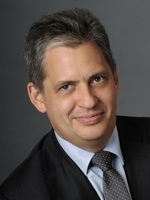
Jiří Dienstbier
Jiří Dienstbier serves as the Minister for Human Rights, Equal Opportunities and Legislation of the Czech Republic and as a member of The Senate of the Czech Republic elected for the region of Kladno. He is a long-serving member of the Czech Social Democratic Party (ČSSD), and previously acted as Chairman of the Young Social Democrats and headed the ČSSD‘s candidate listing for elections to the Prague City Council in 2010. From 2011 to 2013, he was the Deputy Chairman of the ČSSD and shadow Minister of Justice. In 2013, he stood as a candidate for President of the Czech Republic for ČSSD. He was Vice-Chairman of the ČSSD Senate Club, and a member of the Committee on Legal and Constiututional Affairs and the Committee on Agenda and Procedure of the Czech Senate from 2012 to 2014.
He graduated from the Faculty of Law of Charles University in Prague, was a member of the Federal Assembly Parliament in the 1990s, and worked as an attorney for a number of years.

John Doyle
John Doyle is a Regional Coordinator at South East Domestic Violence Intervention Programme/MEND (men ending domestic abuse). Mr. Doyle is currently a Board member of “Working with Perpetrators – European Network”. He has trained as a psychotherapist, specializing in body-based psychotherapy, training initially in Biodynamic Psychology and Psychotherapy at the Gerda Boyesen Centre in London and more recently with the Sensorimotor Psychotherapy Institute in Boulder in Colorado. Since 2006 Mr. Doyle has been the Coordinator of the Men’s Development Network’s Domestic Violence Intervention Programmes within the South East, overseeing the delivery of 5 intervention programmes.
Before he worked in private practice for 10 years. In December 2013 the MEND Programme was chosen to represent Ireland in the European Crime Prevention Award (ECPA) Vilnius December 2013. Mr. Doyle was the first representative from the DVIP Committee on the National Steering Committee on Violence against Women.

Kateřina Fialová
Kateřina Fialová is a coordinator of the research “From impunity to justice: Exploring corporate and legal remedies for technology-related violence against women”, the Association for Progressive Communication (APC). The research is part of the APC “End violence: Women’s rights and safety online” project funded by the Dutch Ministry of Foreign Affairs (DGIS) and is based on a strong alliance with partners in seven countries: Bosnia and Herzegovina, Colombia, Democratic Republic of Congo, Kenya, Mexico, Pakistan and the Philippines. For more information visit genderit.org/VAWonline-research and www.takebackthetech.net.

Feride Acar
Feride Acar is a member of the UN Committee on the Elimination of Discrimination against Women (CEDAW) where she served in the past, as a member, Rapporteur, Vice-chair and Chairperson (2003-2005). She has been a professor at the Department of Political Science and Public Administration at the Middle East Technical University (METU) where she was also the Founding Chairperson (1994-2002) of the Gender and Women’s Studies Graduate Program. Her areas of academic interest are political sociology, social movements, gender studies and women’s human rights. She has been active in the international arena working both as an independent expert and a representative of Turkey in gender equality and women’s human rights areas.
Feride Acar was one of the independent international experts in the Council of Europe Task Force that recommended the making of a European Convention on violence against women. More Later, Ms Acar was appointed to negotiate the text of the “Convention on Preventing and Combating Violence against Women and Domestic Violence (Istanbul Convention)” on behalf of Turkey. She has coordinated and led many national and cross cultural research projects on women’s rights and gender equality including World Bank, Country Gender Assessment on Turkey, 2002-2003, European Commission 6th Framework Project QUING and 7th Framework ongoing Project EGERA. As an ‘independent expert’, over the years, she has provided consultancy to many international and national institutions and training for government and civil society organizations all over the world, on women’s human rights and gender equality. She is the author of works on women’s human rights; women in education and academia; women and Islamist politics; as well as social and political movements and Turkish political life. She received her MA and Ph.D. in political sociology from Bryn Mawr College, Pa., USA.
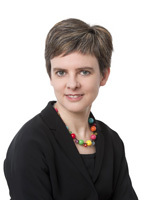
Joanna Goodey
Joanna Goodey is Head of the Freedoms and Justice Department at FRA. Her areas of expertise with respect to the FRA’s work include victims of crime; hate crime; human trafficking, quantitative and qualitative research methodologies, including surveys. Ms. Goodey has been a consultant to the UN International Narcotics Control Board. She was a research fellow for two years at the UN Office on Drugs and Crime. She was also a regular study fellow at the Max Planck Institute for Foreign and International Criminal Law in Freiburg. To date, she has published over thirty academic journal articles and book chapters.
Ms. Goodey is the author of the academic textbook Victims and Victimology: research, Policy and Practise (2005), and co-editor of the book, together with A. Crawford, on Integrating a Victim Perspective within Criminal Justice: International Perspectives (2000). Ms. Goodey has a PhD in criminology.

Gauri van Gulik
Gauri van Gulik is the Deputy Director for Amnesty International’s Europe and Central Asia team, managing all work in European Union states and the Balkans. Previously, Ms. van Gulik was the global women’s rights advocate for Human Rights watch, where her work focused on violence against women, child marriage and reproductive health. She also worked for Marie Stopes International (where she was the European Advocacy Officer), the International Rehabilitation Council for Torture Victims and the Civil Liberties Committee in the European Parliament. Ms. van Gulik holds a BA and MA in European and Comparative Law and an MA in human rights from the European Inter-University Centre for Human Rights and Democratisation in Venice.

Marianne Hester
Marianne Hester holds the Chair in Gender, Violence and International Policy at the University of Bristol and heads the Centre for Gender and Violence Research. She is a leading researcher of gender-based violence internationally and has directed research in the UK, Europe, China and Scandinavia. Professor Hester’s current research projects include men, domestic violence and the health service; rape and the criminal justice system; and domestic violence perpetrator programmes across Europe. She has worked closely with the Council of Europe, NGOs and UK government departments, as expert advisor to the National Institute for Clinical Excellence Programme Development Group on Preventing and Reducing Domestic Violence.
And also as Research Director to the UK Department of Health & National Institute for Mental Health, as specialist advisor to the UK Home Affairs Select Committee, and as NSPCC Professor of Child Sexual Exploitation. Marianne Hester is Patron of South Tyneside Women’s Aid and Devon Rape Crisis. She is an author of various publications. Prof. Hester received her PhD in Leeds.
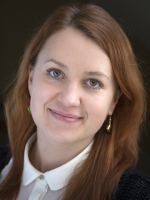
Mėta Adutavičiūtė
Mėta Adutavičiūtė is legal and policy adviser at Human Rights Monitoring Institute (HRMI), Lithuania-based non-governmental organisation. At HRMI, her main areas of work include research and advocacy with a focus on the rights of crime victims, especially victims of domestic violence and child victims of violence. She is also a member of Liberal Movement Party’s Human Rights and Civil Society Committee. Before joining HRMI, Mėta worked on a litigation team in the UK-based legal charity Refugee and Migrant Justice. She obtained her BA in Political Sciences from Vilnius University and Human Rights LL.M. degree from the University of Leicester.

Klas Hyllander
Klas Hyllander is an Independent Consultant who has worked with gender equality and prevention of gender based violence over the past 15 years focusing on approaches involving men and masculinities. Between 2002 and 2012 he was Secretary General of the Swedish NGO Men for Gender Equality. Mr. Hyllander is a founding member of MenEngage Europe and was a member of the global executive committee of the MenEngage Alliance up to 2012. Furthermore, Mr. Hyllander was involved in the development of the international MenCare campaign on fatherhood and gender equality. He is an experienced speaker and trainer, and has participated in numerous government hearings and UN events etc. Mr. Hyllander holds a Master of Science degree from Lund University, Sweden.

Christine Mary Chinkin
Christine Mary Chinkin is emeritus professor of international law at the London School of Economics and Political Science at the University of London and Director of the School’s Centre on Women, Peace and Security. She is also a William W. Cook Global Law Professor at Michigan Law School. She is an internationally respected scholar of public international law, alternative dispute resolution, international criminal law, international human rights, especially women’s human rights, and the intersection of feminist jurisprudence and international law. Prof. Chinkin is a member of the editorial board of the American Journal of International Law. She is a member of the Kosovo Human Rights Advisory Panel.
Prof. Chinkin has served as a senior or guest lecturer on international law and international human rights at the National University of Singapore, Hong Kong University Law School, International Law Institute of China, European University Institute, Columbia University, and University of Southampton. Prof. Chinkin is the co-editor of The UN Convention on the Elimination of All Forms of Discrimination Against Women: A Commentary (OUP, 2012); author of The Making of International Law (OUP, 2007), The Boundaries of International Law: A Feminist Analysis (MUP, 2000), and Third Parties in International Law (OUP, 1993); and coauthor of Dispute Resolution in Australia, 2nd ed. (Butterworths, 2002). She received PhD from the University of Sydney in 1990.
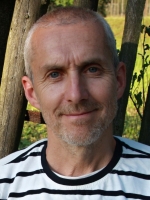
Martin Jára
Martin Jára is the Director of the League of Open Men, which has been improving the quality of men’s life in the Czech Republic since 2006. He also works in the League as guarantor of the Men against Violence towards Women and Children project. Mr. Jára has his own psychotherapy practice, where he specialises in working with men in difficult life situations. He has been leading men’s groups for 15 years. His fields of work also include education in psychotherapy and application of psychology and psychotherapy concepts in a social context, these days primarily in gender issues.

Věra Jourová
Věra Jourová is currently European Commissioner for Justice, Consumers and Gender Equality. In 2014, before coming to the European Commission, Ms Jourová held the position of Minister for Regional Development in the Czech Republic. Previous to this, from 2006 to 2013, she worked in her own company as an international consultant on European Union funding, and also was involved in consultancy activities in the Western Balkans relating to the European Union Accession. In 2003 Ms. Jourová was appointed Deputy Minister for Regional Development, a position which she held for three years.
Previously she worked as Head of the Department of Regional Development in the Vysočina Region, from 2001, and before that as Secretary and Spokesperson of the Třebič Municipal Office, from 1995 to 2001. Ms Jourová holds a Degree in Law (Mgr.) from the Charles University, Prague and a Master’s degree (Mgr.) in the Theory of Culture from the Charles University, Prague.

Freja Ulvestad Kärki
Freja Ulvestad Kärki is Project manager and Specialist in Clinical Psychology at the Norwegian Directorate of Health. Since 2011 she has been in charge of establishing and implementing the psycho-social follow-up for the victims of 22nd July terror in Norway on behalf of the Norwegian health authorities. Her other responsibility areas are work against radicalization and violent extremism nationally and internationally, being WHO national counterpart for mental health and WHO focal person for violence prevention, and donor programme partner in EEA/Norway Grant in Estonia and Slovakia in the field of gender-based and domestic violence.
Dr Kärki is an author or co-author of several publications, for example Supervision with multiple voices and From Shock to Empowerment. The Norwegian response to a national trauma. She has a degree in organizational psychology. In addition, she has post graduate studies in the field of management.
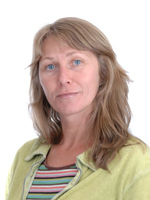
Taran Knudstad
Taran Knudstad is an Anthropologist. Since 2006 she has worked in the monitoring section with the Norwegian Equality and Anti-Discrimination Ombud. The section monitors the government’s implementation of three UN conventions: Convention on the elimination of all forms of discrimination against women, Convention on the Elimination of All Forms of Racial Discrimination and Convention on the Rights of Persons with Disabilities. Ms. Knudstad‘s areas of expertise include gender-based discrimination and gender equality, including sexualized gender-based violence, and discrimination based on ethnicity. She also works with hate crime and hate speech based on several discrimination strands, but with a primary focus on gender and ethnicity. Ms. Knudstad has a degree from the University of Oslo, Norway.

Kristiina Luht
Kristiina Luht is Adviser at the Department for Equality Policies of the Estonian Ministry of Social Affairs. She is responsible for developing and implementing policies and strategies for tackling trafficking in human beings and violence against women and creating services for victims of human trafficking and gender based violence. She also deals with implementation of the National Strategy for Preventing Violence 2015-2020 (including domestic violence, sexual violence and human trafficking), organising and implementing trainings and lectures for different target groups, producing teaching materials and guidelines on THB and on domestic violence, counselling local and international projects on THB and violence prevention and victim support.
Ms. Luht is also performing as the Ministry’s official representative in the National Working Group on Human Trafficking and in the National Working Group on Violence. Between 2003 and 2004 Ms. Luht worked as a project manager at the the Estonian Ministry of Social Affairs where she created and implemented several international projects such as “Drugs, prostitution, trafficking from gender perspective” in Nordic and Baltic countries and Northwest Russia. Between 2002 and 2003 she was an Estonian national coordinator for the Nordic Baltic Campaign against Trafficking in Women. Ms. Luht has written several articles on prostitution and human trafficking. She is an author or co-author of several teaching materials and guidelines on how to prevent human trafficking and support its victims for example Guide for Identifying and Aiding Victims of Human Trafficking and Trafficking in Human Beings: Theory and Practice for Assisting the Victims. Manual for Social Workers. She gained M.A. in Information Science at the Tallinn University.
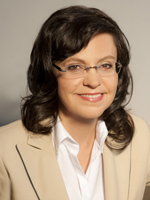
Michaela Marksová
Michaela Marksová is the Czech Minister of Labour and Social Affairs. Besides this, she has been a council member of the Prague 2 city district since 2006, where she worked in the position of city district councillor from 2010 to 2012. She was also Deputy Mayor of the Prague 2 city district. In the years 2009 and 2010, she was the Director of the Equal Opportunities Section of the Czech Ministry of Education, Youth and Sports. Until 2006 she led the Family Policy Section at the Ministry of Labour and Social Affairs. In the years 1997-2004 she worked as Public Relations Director for the Gender Studies public benefit organisation.
In the past she was also active as an expert on equal opportunities programmes for the non-profit organisation Forum for Family, and as a teacher at the Jedlička Institute and Schools. She was also an external lecturer at the Faculty of Humanities of Charles University. Mrs. Marksová has been dealing with the issue of women’s and men’s positions in society for a long time, as well as women’s rights issues and family policy. These issues are the topics of her lectures, articles and media presentations. She is co-author of the book Na cestě do Evropské unie: průvodkyně nejen pro ženy (On the way to the EU: a guide not only for women) and author of the book Rodina a práce – jak je sladit a nezbláznit se (Family and Work – How to Reconcile them and Stay Sane).

Marceline Naudi
Marceline Naudi is Head of the Department of Gender Studies at the University of Malta. She also contributes to teaching within several other University departments and Faculties on gender issues, violence against women and other anti-oppressive issues (sexual orientation, race, disabilities). She is active in the issues of gender equality, domestic violence, as well as wider equal opportunity issues, and as such has convened, chaired and presented at many conferences, seminars and meetings, both locally and abroad. A social worker by profession, her years of practice has included work with children and young people in care and their families, ex-offenders, homeless people, persons with mental health support needs and survivors of domestic violence.
Ms. Naudi served as the Chairperson of the Commission on Domestic Violence from 2006 to 2010 and as a member and Chairperson of the Gender Issues Committee of the University of Malta for many years. In a voluntary capacity Ms. Naudi has acted as consultant to various agencies in the field of domestic violence and sits on the board of management of one of the local shelters. She forms part of the Women Against Violence Europe (WAVE) board, as well as the newly formed European Women’s Lobby (EWL) Observatory on Violence against Women Steering committee. Ms. Naudi received her Doctorate (in Social Work) from Manchester University in 2004.

Urszula Nowakowska
Urszula Nowakowska is lawyer by profession, founder and president of the Warsaw based Women’s Rights Center and co-founder and board member of WAVE. Her field of expertise includes drafting laws on gender based violence and discrimination as well as providing training on the issue of violence against women. She has been an expert on violence for the parliamentary committees and individual legislators, and an advisor to various governmental bodies responsible for gender equality and equal treatment. She has also been for four years appointed by the Minister of Labor and Social Affairs member of the government board responsible for monitoring the implementation of the National Program on Action to Prevent and Combat Domestic Violence.
As a women’s rights advocate, she initiated several campaigns on violence against women, including – among many others – such projects as the Tribunal on Violence against Women, TV commercials against violence and the therapeutic theater for women victims of violence. In 2011 her work was acknowledged by President of Poland and she was honored by Officer’s Cross of Rebirth of Poland. In April 2015 President of Poland signed final document of ratification of the European Convention on Violence against women and domestic violence at the WRC office. Ms. Nowakowska developed many innovative projects but also – for a number of years – provided legal assistance to abused women. She is an author of numerous legal manuals on violence against women, reports on women’s rights violations and dozens of articles on women’s issues.

valentina pellizzer
valentina pellizzer is executive directress at OneWorld Platform, an organization that tackles and researches the intersection between Internet Rights, Women Rights and Sexualities. The organization believes that technology has an immense power in creating equal world, and even more so to empower girls and women around the world. pellizzer is a feminist activist, connecting feminism, women rights, sexual rights, and the Internet politically and practically. She is a board member of the Association for Progressive Communication (APC).
pellizzer is also a facilitator on strategic use of ICT (Information and Communication Technology), writing for the Web, citizen journalism, digital security and privacy, as well as a facilitator of visual methodology for social change (digital storytelling for transformation, and participatory video, methodologies that combine feminist solidarity with digital technology and its powerful peer-to-peer co-production, distribution and outreach). More Since 2007 pellizzer has contributed for Bosnia Herzegovina for the Global Information Society Watch. She is an advocate of FLOSS (free libre open source software) dealing with the feminist principles of the Internet. She is also a founder of first feminist, alternative web portal in Bosnia and Herzegovina ženskaposla.ba. Furthermore, pellizzer has experience coordinating relief programmes and development programmes, including the distribution of humanitarian aid and the establishment of health services for women refugees.

Jurgita Pečiūrienė
Jurgita Pečiūrienė is a gender expert on gender-based violence. Since 2010 she has worked at the European Institute for Gender Equality, where she deals with the area of gender-based violence. After obtaining Master‘s degree in sociology at Vilnius University, Lithuania in 1995 she has been active in promoting gender equality in Lithuania as an activist and researcher. She has an in-depth knowledge on violence against women, trafficking of human beings and gender mainstreaming. She was the cofounder of the Women‘s Issues Information Centre in Lithuania, and a board member of the Euroepan Women‘s Lobby (2004-2010), and a member of the Governmental Commission on Equal Opportunities for Women and Men (2007-2010).
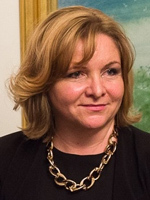
Olga Pietruchova
Olga Pietruchova is director of the Department of Gender Equality and Equal Opportunities of the Ministry of Labour, Social Affairs and the Family of the Slovak Republic. She is a member of the High Level Group on Gender Mainstreaming at the European Commission and a Management Board member of European Institute for Gender Equality. Ms. Pietruchova is an expert and researcher in the field of gender equality, gender mainstreaming and equal opportunities, gender trainer and advocate for human rights with 15 years of experience. She used to work in non-governmental sector and as a member of the governing board of European Women’s Lobby in Brussels.
She is an author or co-author of several publications and studies on gender equality and equal opportunities and has conducted gender trainings and analysis for national and international organisations as UNDP, Oxfam and European Commission. Ms. Pietruchova is also a well-known publicist in Slovakia with more than 150 articles published in Slovak newspapers and magazines. She holds a Master of Arts in Women’s Studies & Feminist Research degree from Rose Mayreder College in Vienna, Austria.

Marja Ruotanen
Marja Ruotanen is the Director of Human Dignity and Equality within the Directorate General of Democracy at the Council of Europe. She deals with the following fields: Violence against Women, Trafficking in Human Beings, Children’s Rights, Gender Equality, Sexual Orientation and Gender Identity issues, Rights of persons with disabilities, as well as Minority protection, Fight against Racism and Intolerance and Sport. Marja Ruotanen joined the Council of Europe in 1990 and has held several positions, including Director of the Private Office of the Secretary General, and recently Director of Justice and Human Dignity within the Directorate General of Human Rights and Rule of Law.
She has served as Secretary to various Parliamentary Assembly Committees, notably the Political Affairs Committee, Committee on Migration, Refugees and Population and the Committee on Gender Equality. She was born in Rovaniemi, Finland and studied International Relations (political science and law) at McGill University in Montreal (Canada).

Salla Saastamoinen
Salla Saastamoinen is the Director in charge of Equality in the Directorate-General Justice and consumers at European Commission since 2014. The Directorate Equality contributes to the development and consolidation of an area of freedom, justice and equality, ensuring that citizens benefit from progress made at European level. To this end, the Directorate coordinates and promotes policy developments to combat discrimination on grounds of sex, racial or ethnic origin, religion or belief, disability, age or sexual orientation, promotes awareness on gender equality and nondiscrimination and coordinates policy developments in respect of the Roma. The Directorate is also responsible for the relationship to the European Institute for Gender Equality.
Ms. Saastamoinen headed the Unit Fundamental rights and rights of the child from 2013 to 2014. Between 2007 and 2013 she headed the Civil Justice Policy Unit in Directorate General Justice. Ms. Saastamoinen has worked in the Commission for 18 years, in the beginning in the legal unit of the Directorate General Environment and then as legal and policy official in the Directorate General Justice, Freedom and Security in the unit Fundamental rights and citizenship. Salla Saastamoinen is a lawyer from the University of Helsinki, Finland.

Alena Skoumalová
Alena Skoumalová has been the head of the 4th Department of the Group of Criminal Police and Investigation of the Brno Metropolitan Police since the year 2005. After graduating from the Faculty of Education in Hradec Králové, she spent 20 years in vocational education. In 1993, she started working as a policewoman, for the last ten years she has been the head of a department specialising in the issue of domestic violence and, lately, also stalking around the City of Brno. She was among the founders of this specialised group, as well as of the Interdisciplinary Domestic Violence Team of Brno City.
She has taken part in a great number of projects dealing with domestic violence and stalking. She has been collaborating with The Government Committee for the Prevention of Domestic Violence for five years. She has been involved with the Bílý kruh bezpečí (White Circle of Safety) organisation as a lawyer since 2007.
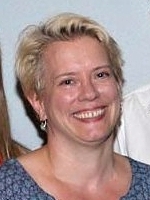
Silke Steinhilber
Silke Steinhilber, Independent consultant “Research, Evaluation, Capacity Development for Gender Equality. Berlin, Germany”. Since 1999, Silke Steinhilber works in her own company as a consultant for research and evidence-based strategic policy advice on social justice, women’s empowerment, gender equality and gender-based violence. She conducts evaluations of national and international projects and programmes promoting gender equality and equal treatment of women and men. Ms Steinhilber is an experienced trainer and developer of capacity building programmes on gender mainstreaming, women’s rights and gender equality. She has developed numerous trainings on social policy and non-discrimination, social security, maternity protection and gender-sensitive evaluations.
She has published numerous articles and book chapters on gender equality and social policy reforms. She has worked closely with various international organizations, among them UN Economic Commission for Europe, UNICEF, UNDP, UN Women, ILO, the World Bank, and Council of Europe, as well as trade unions, women’s organizations or other civil society groups. Ms Steinhilber holds a PhD in Political Science from the New School for Social Research in New York and has extensive working experience in Central and Eastern Europe, the Caucasus and Central Asia, as well as in the European Union, and Latin America.
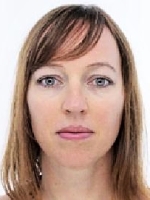
Piret Urb
Piret Urb has been an Estonian diplomat for 12 years with the focus on human rights issues during last 5 years. For a 1 year during Estonia’s chairmanship she was a coordinator of the Freedom Online Coalition (FOC), which is a group of 26 states advancing internet freedom. She was part of the FOC Tallinn Conference’s main organizing team being responsible for substantial issues and the outcome of the event, in 2014. Ms. Piret has been a panellist at previous Internet Governance Forums and was a member of the Estonian delegation to International Telecommunication Union’s (ITU) Plenipotentiary Conference in Busan in 2014. Earlier, Piret served as Deputy Head of Mission at the Estonian Embassy in Greece, where they also represented Estonia in Cyprus and Armenia.
Ms. Piret was part of Estonia’s successful campaign for candidacy to the UN Human Rights Council and was posted to the Permanent Mission of Estonia to the UN in Geneva for 3 years. She worked as human rights expert and carried out Estonia’s policy in the UN Human Rights Council where Estonia’s most important priority has been the promotion and protection of women’s rights and gender equality. During her diplomatic career at the Ministry of Foreign Affairs of Estonia, she has also worked at the European Union Department, Political Department and the Consular Department.

Vladimír Vedra
Vladimír Vedra graduated from the Faculty of Law, Masaryk University in Brno in 2004 and since that time has been working as a police officer in Brno. Apart from other tasks he was appointed responsible officer for domestic violence training of police officers of the Brno City Police Directorate and in 2005 entrusted with establishment of the first specialized Domestic Violence Police Unit in the Czech Republic. He has been involved in domestic violence police training until today. As a member of Interdisciplinary Domestic Violence Team of the Brno City he has been involved in many projects tackling domestic violence.
In 2008 he became head of International Relations Department of the South Moravian Police Directorate. Since 2004 he also works as a volunteer in the non-governmental organization White Circle of Safety providing legal counselling to victims of crime. In 2006 he became head of Brno branch office of this NGO. In the last years he also cooperates with Intervention Centre’s Association of the Czech Republic on an initiative endeavoring for implementation of domestic violence specialization of authorities in the Czech Republic.

Lucia Zachariášová
Lucia Zachariášová is head of the Gender Equality Unit in the Office of the Government of the Czech Republic. The unit is an integrated part of the agency of the Minister for Human Rights, Equal Opportunities and Legislation. Zachariášová coordinated the preparatory process of the Government Strategy for Gender Equality in the Czech Republic for the years 2014–2020 which was approved by the Czech government in November 2014. She is currently coordinating its implementation. She is also secretary of the Government Council for Equal Opportunities for Women and Men. Additionally, she is a member of the Programme Council of the Women’s Congress 2015. Apart from gender equality, Zachariášová is also active in issues concerning transgender people and the rights of other disadvantaged minorities. She is a local politician, a member of the local assembly in the municipality Prague 3.


